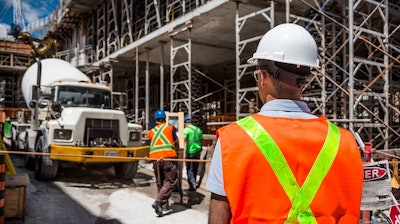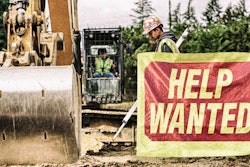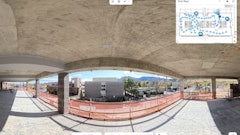
Construction foremen are facing a difficult future. As more and more experience is slowly retiring, tomorrow’s foremen will need to be more hands-on with new hires, invest more time to make sure employees understand their work assignments, and look for more ways to train and coach their people. It’s not an easy task but it‘s one that senior leaders and owners must prepare for today if they are to have a successful business tomorrow!
There is no other role in construction that garners as much stress, criticism and demands yet begs for a host of skills including leadership, teacher, “doer,” and often…babysitter! Caught between the workers who are to complete assigned work and the leaders who assign the work, the foreman often feels like the proverbial “yo-yo,” being pulled in multiple directions.
With such flexibility required of a foreman, how can anyone in this very significant position excel and truly meet the expectations for results of the senior leaders while addressing the expectations of those to they will be leading? Let’s look at two items:
- The focus points of a foreman
- Five key efforts effective foremen execute
The focus of a construction foreman
Three primary areas should always contribute to the focus of an effective foreman.
1. Look-ahead (1-2 Weeks). Effective construction foremen prepare for their work by looking ahead one to two weeks in advance. Such a focus allows time for planning, preparation and positioning. The foreman who sees only the day ahead is lost and will lead his or her crew to rework, callbacks and lost profits.
Foremen can look three, four, even five weeks out; and while that provides some benefit also, zeroing in on the next one to two weeks allows them to make clear decisions, secure the needed resources and alert others to their needs.
2. State of work crew. Effective construction foremen are fully responsible for the state of readiness of their crew. It is the foremen who must assess the “troops” to make sure they have what is needed, are informed about upcoming work, and are clear about performance goals and objectives.
Additionally, the state of the crew requires foremen to recognize the skills, strengths and experience of each crew member and then position such crew traits for maximum production.
One more item worth checking is the “state of mind” of the crew. Foremen are responsible for preparing the crew for each day’s challenges, monitoring the attitude and adjusting leadership to address the attitude to gain the greatest performance that day.
3. Maximize equipment and tools’ purpose. The primary manner in which construction foremen finally ensure greatest results is to see that equipment and tools are in the best working condition. Foremen in every construction company across the world need senior leaders who are quick to support the purchase and maintenance of the best equipment and tools possible.
While it is senior leadership who must purchase the best equipment and tools possible it is the foremen who must diligently see that such critical items are regularly maintained, inspected and handled correctly. Foremen who are highly disciplined in the proper handling and storage of equipment and tools will breed a crew mentality that also respects the “tools of their trade.”
Now, obviously the successful construction foremen will have many things to consider throughout the average workweek; certainly the maintaining of the three focus areas above will provide a strong foundation from which they can operate. Vision (1-2 weeks), state of their crew, and proper equipment and tool management will point any construction foremen in the right direction. Now, let’s look at five needed skills foremen needs to acquire and master.
Five key skills every construction foreman needs
1. Learn to “huddle” your crew. To “huddle” your crew is to literally bring your crew members close together to conduct important discussions about the day’s work efforts, safety reminders and any other work-related items to help kick off the day.
Huddling your crew should be done at a minimum at the beginning of the work day (on the jobsite) and at the end of the day (also on the jobsite). You reinforce “team” when you huddle your crew together, allowing them to offer ideas, exchange differences of opinions and piggyback on the ideas of other members. It’s also your chance to set the tone for the day or address challenges or failures at the end of the workday.... as a team!
2. Personalize your message. While team time is executed during huddling, construction foremen need to work hard at personalizing their intentions, expectations and needs on a personalized basis. This requires foremen to know each crew member, recognizing how each member learns, how each member receives feedback, how each adjusts to others, and what each person likes and doesn’t like to do when working.
Foremen who develop such knowledge about their crew members will experience greater performance, better personal relationships with crew members and a much higher level of crew motivation. Personalize your treatment of your workers and they will worship you. (Ok, maybe not worship but greatly respect!)
3. Know your next three moves. Knowing your “next three moves” requires you to know what is coming at you and your crew over the next one to two weeks. It also requires that you understand the scope of work that will be completed; what other construction crews might be involved; what advance warnings or requests need to be announced; and what you need to do, move, or schedule so that your crew has few hurdles to jump.
Your role is to keep as many obstacles as possible out of your crew’s way so that the maximum “speed” is achieved; speed that fully achieves the needed quality and safety in completing work.
Remember the following:
Move #1 – Know the needs for tomorrow…today!
Move #2 – Line up forecasted decisions to ensure a great week!
Move #3 – Clear known obstacles BEFORE they arrive!
4. Master construction “math” (for your specialty of construction). Construction foremen cannot accurately schedule and effectively utilize their crew members without knowing how to calculate their units of production. No matter whether your production is in square feet, cubic yards or linear feet construction foremen must know how to calculate their crew’s productivity or risk being shorted in manpower or fail to order the correct amount of materials for installation.
Crew foremen who are capable and confident about calculating their productivity rates are better thinkers, better decision makers and do a better job completing challenging work — and even complete more work. I’ve seen it!
While estimators trying to win work often use industry standards, effective construction foremen assist estimators by providing more accurate crew rates. Construction foremen who know their “real numbers” will more accurately schedule work, position their crew more strategically, challenge their leaders to make better decisions and provide even their company’s estimators with better numbers to win more work!
5. Be proactive in decision making. Effective construction foremen are not “fence-sitters” waiting to be led. They consider the upcoming work for the week; recognize the strengths of their crew; and decide who will do what, when, where, and with what! Effective decision-making follows this four-point approach:
- Identify the situation and what needs exist
- Consider past similar situations and unique differences
- Consider consequences of decisions including costs, customer satisfaction, ease of work, safety and “what’s the right thing to do”
- Consider counsel if needed, and then MAKE THE DECISION!
Time and time again senior leaders tell me they want their foremen to “Just make a decision; even if it’s the wrong one, just make the decision!” While we don’t want to encourage construction foremen to recklessly make poor decisions, foremen who carefully and quickly assesses their situation and make the best decision based on available “intel” will more often than not be commended and appreciated.
Remember: if construction foremen can’t or won’t make decisions their use to the company is not needed.




















